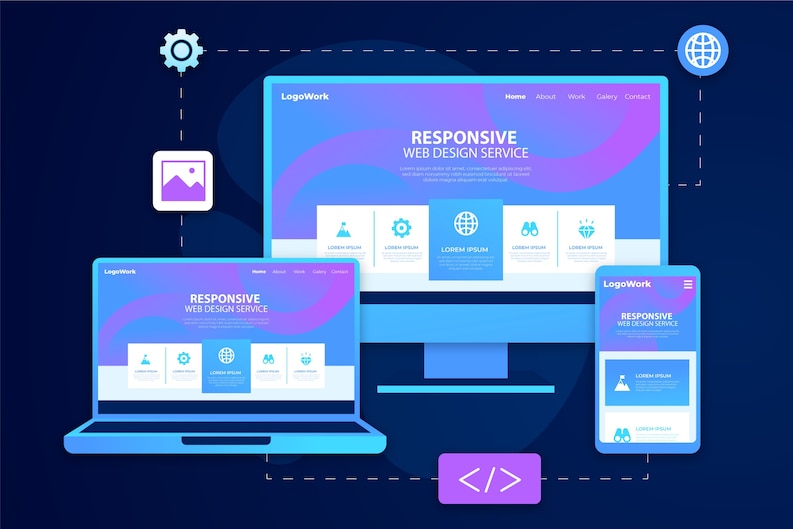WordPress vs. Laravel: Choosing the Right Platform for Your Automotive Website




Your online presence greatly depends on selecting the best platform when designing an automotive website. WordPress and Laravel are commonly evaluated against each other for their flexibility, convenience, and the ability to modify them. The decision between WordPress and Laravel for your site—whether for car dealerships, automotive services, or car enthusiast blogs—depends directly on the particular business needs you have. This blog will provide a detailed comparison between WordPress and LaravelWordPress: An Awarded Idea for Practicality and Simplicity.
WordPress is the power behind more than 40% of sites on the internet and is thus a widely known name in the content management system (CMS) space. Recognized for its simple and intuitive interface, a vast collection of plugins, and many pre-designed themes.
WordPress for Automotive Sites: Businesses wanting a fast and convenient way to build their automotive site would find WordPress to be perfect. WordPress has themes made for automotive professionals, like AutoTrader and Motors, which are tailored to the industry regardless of whether you’re a car dealership, auto repair shop, or automotive blogger.
The PHP-based framework Laravel offers you more authority over how your website is structured and functions. It is a preference for custom websites, despite its technical complexity, since it offers both flexibility and scalability.
Laravel for Automotive Websites: If you’re an automotive business wanting a unique website, Laravel is the right answer for you. This allows developers to design a highly capable site with personalized features, such as real-time inventory tracking for dealerships, repair shop booking systems, and advanced search filters for buyers, which helps you identify the right platform for your automotive website.
Using WordPress is remarkably easy, as is evident, even for individuals with limited technical understanding. elements such as Elementor and their intuitive interface permit users to operate and update their sites independently of a heavy reliance on a developer. Also, with thousands of plugins available, it's a snap to insert functionality including payment gateways, booking systems, and contact forms.
WordPress Automotive Themes:: WordPress is, without a doubt, the best way to get your automotive website launched quickly. With the platform, it's easy to customize using existing WordPress automotive themes, so you can do so without having to know advanced coding.
In contrast, Laravel requires you to know how to code, meaning you will have to hire a developer for site construction and maintenance. Even though this may look like a flaw, the platform helps to ensure greater flexibility in personalization and performance. With Laravel, the ability to develop intricate automotive business websites is there for developers seeking specific functionalities often hard to obtain with WordPress plugins.
Laravel for Automotive Business Sites:Should your auto website have different requirements, Laravel permits your developer to design customized solutions in line with your business. Companies wanting to scale will find this especially valuable, because Laravel provides the framework for growth in accordance with your business.
WordPress is definitely an outstanding option for small and medium enterprises. Once your automotive website builds up more features, traffic, and functionality, WordPress may begin to function more slowly. The more plugins you have, the more likely it is that your website will become slow, and the chances of plugin conflicts will rise.
Automotive Website Development Platform: Businesses launching for the first time will benefit from WordPress, however, large automotive corporations with future growth goals should reflect on their ongoing requirements. For considerable growth, you might need a solution that is more scalable.
Laravel is extremely scalable, which makes it optimal for developing automotive businesses. Being designed for performance, the framework is able to manage high levels of traffic, handle sophisticated capabilities, and deal with swelling datasets without much effort. Also worth mentioning is that Laravel supports simple integration with third-party applications, systems, and APIs.
WordPress vs Laravel for Web Development: Laravel global news clearly outperforms WordPress in the scalability aspect of web development. Laravel provides the base needed for your business to develop without losing performance if you expect it to grow or need to incorporate advanced functionalities later on.
As WordPress is optimized for SEO from the outset, its integration with Yoast SEO makes optimizing your automotive website easy. Also, WordPress themes are frequently programmed to appeal to search engines, helping your site rank more prominently in search engine results.
WordPress for Automotive Sites: An effective SEO plugin can make optimizing your automotive website for search engines simple, which in turn raises your visibility and helps draw more customers. People searching for ways to boost their SEO will find WordPress to be a great solution that doesn’t demand extensive coding knowledge.
Conversely, Laravel does not include integrated SEO features. While SEO can take place, it demands both more work and skilled resources when contrasted with WordPress. To accomplish SEO friendliness, you’ll probably need a developer, which makes it harder for non-developers to use.
Choosing a Platform for Automotive Websites: If your priority is SEO and you need a fast answer, WordPress might be the better answer. If you possess the necessary technical skills, you have the chance to achieve more advanced SEO strategies with Laravel.
The widespread use of WordPress and its many third-party plugins are the main reasons for its reputation as being more vulnerable to security threats. Although WordPress is largely secure, the threat arises from the plugins that are either tapeling coded or out of date.
WordPress vs Laravel for Web Development: While it’s simple to create and oversee a site with WordPress, you’ll have to stay alert about plugin updates and use security tools such as Wordfence to shield your automotive website.
One of the reasons Laravel is popular is its powerful built-in security mechanisms, which help defend against prevalent dangers such as SQL injection and cross-site scripting. Being that Laravel doesn’t heavily utilize third-party plugins, there is a reduced risk of vulnerabilities coming from external sources.
Custom Automotive Website Laravel: For businesses where security is primary, particularly those managing sensitive customer information, Laravel offers a greater level of protection.
When it comes to choosing between WordPress and Laravel for your automotive website, it ultimately depends on your specific needs and goals.
WordPress for Automotive Sites is the best option for small to medium-sized businesses looking for a quick, user-friendly solution with pre-built themes and plugins.
Laravel for Automotive Business Sites, on the other hand, is ideal for larger companies that need a fully customized, scalable, and secure solution.
For businesses that prioritize ease of use and SEO, WordPress is a clear winner. However, if you need a platform that can grow with your business and offer custom features, Laravel provides unmatched flexibility. Both platforms have their pros and cons, so carefully evaluate your business needs before making a decision.
WordPress is generally the better choice for small to medium-sized automotive businesses. Its user-friendly interface, pre-built automotive themes, and wide range of plugins make it a convenient option for quickly launching a website without advanced coding knowledge.
Yes, Laravel tends to offer stronger built-in security features compared to WordPress. Since Laravel doesn't heavily rely on third-party plugins, it reduces the risks associated with external vulnerabilities, making it ideal for businesses handling sensitive data, like customer details.
WordPress is suitable for small to medium websites but may struggle with performance as traffic grows due to reliance on plugins. Laravel, on the other hand, is built for scalability and can handle high traffic and complex functionalities, making it better suited for growing automotive businesses.
WordPress is typically easier for SEO, especially for non-technical users. With built-in SEO features and plugins like Yoast SEO, you can optimize your automotive website quickly. Laravel requires more technical expertise to implement SEO strategies effectively.
While WordPress offers customization through themes and plugins, it's limited in terms of flexibility compared to Laravel. For a fully customized automotive website with unique features, Laravel is the better option, though it requires the expertise of a developer.